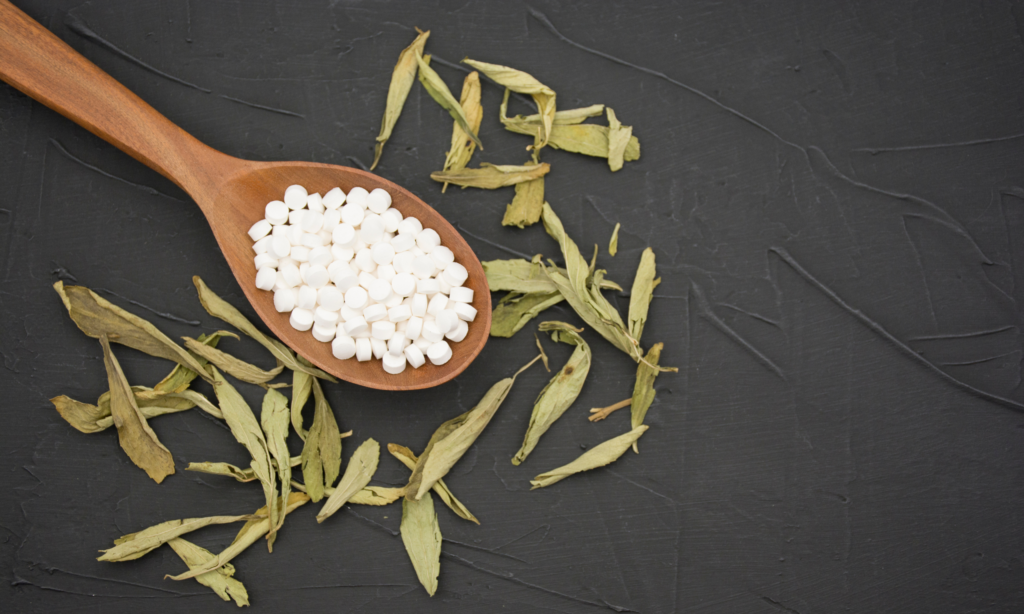Safe Sugar Substitutes

If you are trying to reduce your calorie and sugar intake, you may be considering introducing artificial sweeteners and sugar alcohols to your diet.
These sugar substitutes can be found in many foods and beverages that are labelled as ‘sugar-free’ or ‘diet-friendly’.
Artificial sweeteners are sugar substitutes that are virtually calorie-free. They can be found in soft drinks, candy, baked goods, dairy products, jams and jellies, and puddings.
Although some people may be concerned about the safety of consuming artificial sweeteners, strong evidence suggests that they are safe for human consumption. In addition, each sweetener has an ADI (acceptable daily intake), which is the maximum amount of sweetener that is recognised as safe to consume daily, and these limits are far more than what any person would consume on an average day.
Sugar alcohols (polyols) are another kind of sugar substitute. These are carbohydrates that occur naturally in certain fruits and vegetables, although they can also be manufactured. Sugar alcohols do contain calories, but they are still attractive to those wanting to cut down their intake as they contain fewer than sugar. Their glycaemic index is also significantly lower than that of sugar, meaning that they have very little effect on blood sugar and insulin levels.
They are not generally used in the preparation of food at home, but can be found in products like chocolate, chewing gum, and toothpaste.
You can find out if your favourite items include polyols by looking at the nutritional label and seeing if the following are listed: mannitol, sorbitol, xylitol, lactitol, isomalt, and maltitol.
Sweeteners are an excellent alternative to traditional sugar, and are useful as a healthier option for individuals with diabetes.

